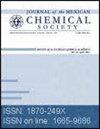Recent Advances in the Bioherbicidal Potential of Tenuazonic Acid, an Alternaria spp. mycotoxin
IF 0.8
4区 化学
Q3 CHEMISTRY, MULTIDISCIPLINARY
引用次数: 0
Abstract
Abstract. This review addresses the current knowledge on the phytotoxic roles of tenuazonic acid and its biosynthesis in Alternaria. We examine recent advances in the biosynthesis of this toxin produced by A. alternata and other fungi; the pathogenicity mechanisms that this molecule displays to exert its bioherbicidal activity; and the risks for human and animal health involved in using tenuazonic acid versus a native mix of toxins produced by A. alternata. Finally, we discuss the potential use of tenuazonic acid versus fungal isolates for agricultural weed control. Resumen. Esta revisión aborda el estado del arte en el conocimiento acerca de los mecanismos de fitotoxicidad del ácido tenuazónico y su biosíntesis en Alternaria. Se examinan los avances más recientes en la biosíntesis de esta toxina producida por A. alternata y otros hongos; los mecanismos de patogenicidad que esta molécula emplea para ejercer su actividad bioherbicida; así como los riesgos para la salud humana y animal involucrados en el uso de ácido tenuazónico comparado a una mezcla de las toxinas producidas por A. alternata. Finalmente, se discute el uso potencial del ácido tenuazónico versus aislados fúngicos para el control de malezas en la agricultura.交替孢真菌毒素Tenuazonic Acid生物除草潜力的研究进展
Abstract。这一审查addresses the current knowledge on the phytotoxic角色of tenuazonic所and its biosynthesis in Alternaria。我们研究了alternata和其他真菌产生的这种毒素生物合成的最新进展;该分子表现出其生物除草剂活性的致病机制;= =地理= =根据美国人口普查,这个县的面积为,其中土地面积为,人口密度为每平方英里(1 /平方公里)。最后,我们讨论了tenuazonic酸与真菌分离物在农业杂草防治中的潜在应用。摘要。本研究的目的是确定一种植物对链孢霉毒素的抗性,并确定其对链孢霉毒素的抗性。研究了由alternata和其他真菌产生的这种毒素生物合成的最新进展;该分子用于执行其生物除草剂活性的致病性机制;以及使用tenuazonic acid与alternata产生的毒素混合物相比对人类和动物健康的风险。本研究的目的是评估真菌分离物在农业杂草控制中的潜在应用。
本文章由计算机程序翻译,如有差异,请以英文原文为准。
求助全文
约1分钟内获得全文
求助全文
来源期刊
CiteScore
2.00
自引率
0.00%
发文量
0
审稿时长
6-12 weeks
期刊介绍:
The Journal of the Mexican Chemical Society (J. Mex. Chem. Soc.) is a scientific, blind, peer reviewed, and open access, free of charge publication that covers all areas of chemistry and its sub-disciplines (i.e. medicinal chemistry, natural products, electrochemistry, material science, computational chemistry, organic chemistry, bionirganic chemistry, etc). It is devoted to facilitating the worldwide advancement of our understanding of chemistry. It will primarily publish original contributions of research in all branches of the theory and practice of chemistry in its broadest context as well as critical reviews in active areas of chemical research where the author has published significant contribution. The J. Mex. Chem. Soc. is a quarterly publication which language of submission and publication is English. To be suitable for publication in J. Mex. Chem. Soc., manuscripts must describe novel aspects of chemistry, high quality of results and discussion an excellent bibliographic support, and contribute to the development of the field. Routine or incremental work are not suitable for publication in J. Mex. Chem. Soc. Authors are encouraged to send contributions in electronic form. Our online submission system guides you stepwise through the process of entering your article details and uploading your files.

 求助内容:
求助内容: 应助结果提醒方式:
应助结果提醒方式:


